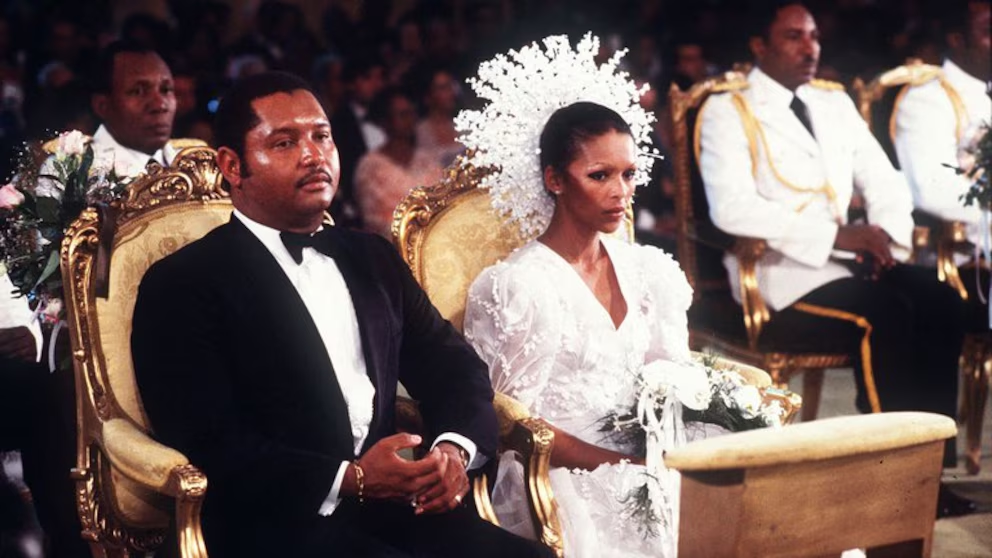The president of Panama sends a strong warning to Donald Trump

The president of Panama, José Raúl Mulinorejected this Monday “comprehensively” the words of his American counterpart, donald trumpabout his intentions to “retake” the Panama Canalpointing out once again that “The Canal is and will continue to be Panama’s.”
“On behalf of the Republic of Panama and its people, I must comprehensively reject the words outlined by President Donald Trump regarding Panama and its Canal, in his inaugural address. I reiterate what I expressed in my message to the Nation on December 22: the Canal is and will continue to be Panama’s,” the Central American president said in a statement.
Trump reiterated today during his inauguration ceremony that he is going to “retake” the Panama Canal because, as he claims, there is a Chinese presence, and he also complained again about the high price that American ships would be paying when crossing the interoceanic waterway.
“China The Panama Canal is operating. But we didn’t give it to China. We gave it to Panama, and we are going to take it back,” said the US president.
Denies presence of “any nation” and points to dialogue
Mulino once again assured that “There is no presence of any nation in the world that interferes with our administration. The Canal was not a concession from anyone. “It was the result of generational struggles that culminated in 1999, as a result of the Torrijos-Carter treaty.”he stressed.
“And, from then to date, for 25 years, uninterruptedly, we have managed and expanded it responsibly to serve the world and its commerce, including the United States,” he added in the statement.
The Panama Canal was built by the United States, which inaugurated it in 1914 and administered it until its total transfer to the Panamanian State on December 31, 1999, as established in the Torrijos-Carter Treaties, signed on September 7, 1977 in Washington by the Panamanian leader, Omar Torrijos (1929-1981), and the American president,https://www.elnuevodia.com/topicos/jimmy-carter/ (1924-2024).
Thus, Mulino pointed out: “We will exercise the right that protects us, the legal basis of the Treaty, the dignity that distinguishes us and the strength that International Law gives us as the ideal way to manage relations between countries and, above all, between allied countries. and friends, as history and our actions towards the United States demonstrate.”
And he concluded, in a conciliatory tone, that “dialogue is always the way to clarify the points mentioned without undermining our right, total sovereignty and ownership of our Canal.”
“What is in Panama belongs to the Panamanians”
Since December, the new US president has accused the canal administration of charging excessive tariffs to the United States, as well as alleged control of the roads by China, both of which have been repeatedly denied by Panamanian authorities.
Trump’s continuous statements about the “recovery” of the Panama Canal have generated widespread rejection in the Central American country, especially from the Panamanian Government, which has reiterated on several occasions that “the Canal is and will continue to be Panamanian” and is “unpurchasable.” ”.
In this scenario, a group of unions protested this Monday in front of the residence of the US ambassador in Panama, burning US flags in rejection of Trump’s claims to retake the Canal, within the framework of his inauguration.
“Neither Trump, nor the gringos, nor his Army nor his Government have anything in Panama. What is in Panama belongs to the Panamanians: the canal is Panamanian, sovereignty is Panamanian and self-determination is Panamanian,” union leader Saúl Méndez told EFE.
The canal, a “fight” for sovereignty
The transfer of the road to Panamanian hands 25 years ago is a historic “fight” and an “irreversible conquest” for the total sovereignty of Panama that spanned decades, as the Executive of Panama has pointed out.
61 years ago, on January 9, around twenty students died when confronting US troops who tore down a Panamanian flag, which the former were seeking to raise in the former canal zone, a colonial enclave then under US control.
In addition to the Torrijos-Carter Treaties, which returned the Canal to Panama, there are also documents related to the permanent neutrality and operation of the waterway signed by the United States and Panama in 1977 that are “mandatory” to comply with, and put an end to the treaty. Hay-Bunau Rod of 1903 that gave the United States the rights in perpetuity to build and use the canal started by the French, as the former president explained to EFE Panamanian (1978-1982) and former negotiator of the Torrijos-Carter Treaties of 1977, Arístides Royo.




